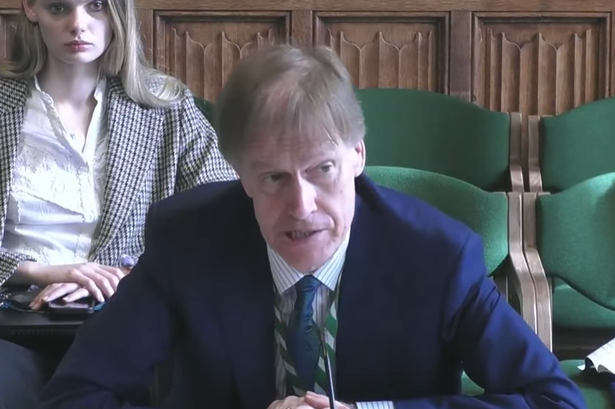
The Department for Work and Pensions highlights PIP payments after the call for exceptions for disabled people
15:38, 15 Nov 2025Updated 15:46, 15 Nov 2025
Sir Stephen Timms was forced to reply over calls for Universal Credit savings rules to be waived for the disabled
The government has given an update after calls to introduce savings exceptions for those on Universal Credit. The benefit is a UK government monthly payment to help with living costs for people who are on a low income, out of work, or unable to work. It is administered by the Department for Work and Pensions (DWP) and has replaced several older “legacy” benefits such as housing benefit and Working Tax Credits.
In a new question, Liberal Democrat Gideon Amos asked the Secretary of State for Work and Pensions Pat McFadden if he would consider changing the threshold for savings for the disabled. Currently, the Universal Credit (UC) savings threshold is £16,000; people are not eligible for UC if their total savings and investments are above this amount.
If the savings are between £6,000 and £16,000, their UC payment will be reduced by £4.35 for every £250 (or part of £250) they have over £6,000. Savings below £6,000 have no impact on the claim.
Mr Amos asked Mr McFadden: “What assessment he has made of the adequacy of the Universal Credit savings threshold for disabled claimants who are permanently unable to work and need to pay for (a) mobility equipment, (b) vehicle repairs, (c) respite care and (d) other disability-related costs; and if he will make an assessment of the potential merits of (A) introducing exemptions to and (B) increasing the Universal Credit savings threshold for disabled people who are unable to work.”
Sir Stephen Timms, Minister of State for Social Security and Disability, replied that for disabled people, the Personal Independence Payment is aimed at helping them cope with the expenses of living. In a new response he said: “Personal Independence Payment (PIP) provides a contribution towards the extra costs that may arise from a long-term disability or health condition. PIP is non-contributory and non-means-tested. Individuals can choose how to use the benefit, in light of their individual needs and preferences.
“The benefit can also be paid in addition to any other financial or practical support someone may be entitled to such as Universal Credit, Employment and Support Allowance, NHS services, free prescriptions, and help with travel costs to appointments. It can also act as a passport to additional support such as premiums and additional amounts paid within certain benefits, Carer’s Allowance for an informal carer or the Blue Badge scheme. The benefit has been consistently uprated in line with inflation since it was introduced and was last increased by 1.7% from 7 April 2025.
“The current system allows people to continue to receive benefit even though they may have an amount of capital from £6,000 by gradually reducing the level of their entitlement. The capital limit above which Universal Credit entitlement ends is above £16,000.
“Whilst we keep all policies under review there are no current plans to change the capital limits for disabled customers.”£
The number of people claiming universal credit (UC) in Britain who are not required to work has risen by more than a million in a year, new figures show. There were four million people in this category in October, making up almost half (48.7%) of all claimants.
UC is a payment to help with living costs and is available for people in work who are on low incomes, as well as those who are out of work or cannot work. People in the “no work requirements” bracket can include those in full-time education, over the state pension age, someone with a child aged under one, and those considered to have no prospect of work.
There were 8.3 million people overall on UC in October, a rise from 7.2 million at the same point last year, figures from the Department for Work and Pensions (DWP) showed.
The data covers England, Scotland and Wales. The year-on-year change of 1.1 million is the largest annual increase in total claimants since early in the Covid pandemic – the 12 months to April 2021.
The rise of 159,654 in total UC claimants between September and October was the largest monthly increase since June 2020.
The steep rise in the past 12 months has been driven almost entirely by people who are not required to work, rising from 2.9 million in that category a year ago in October 2024 and up from 2.2 million in October 2023.
Claimants in the no work requirements category accounted for 40.4% of all UC claims in October 2024 and 36.3% in October 2023.
Other claimants are required to do certain work-related activities to receive the UC benefit, such as attending interviews to plan for their return to work or actively searching for work.





